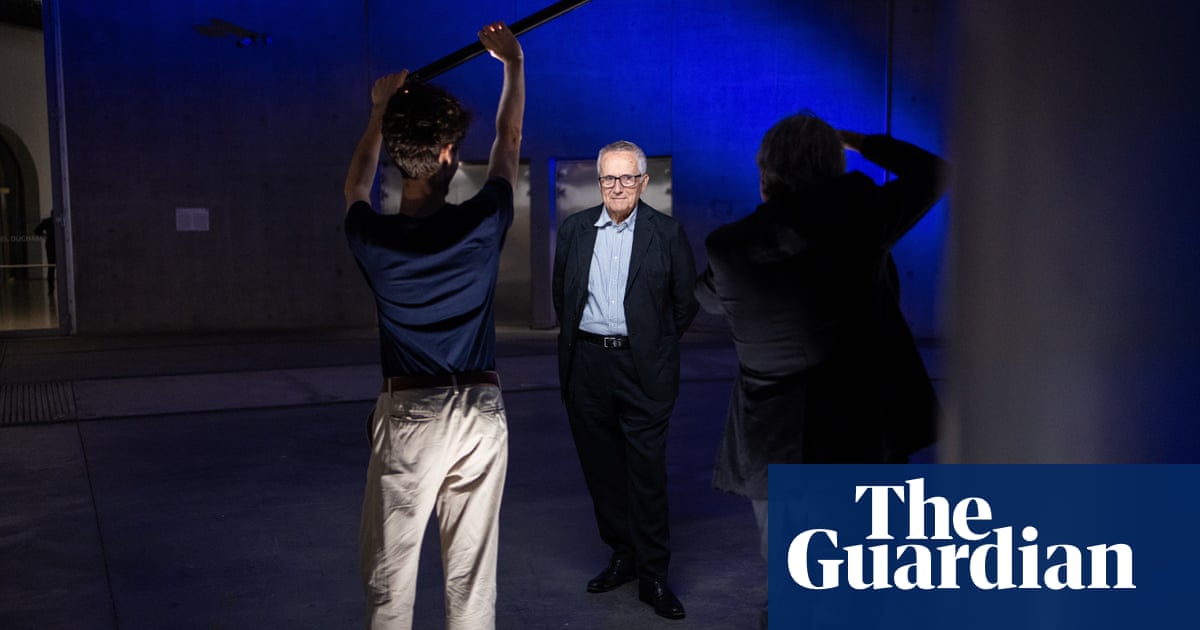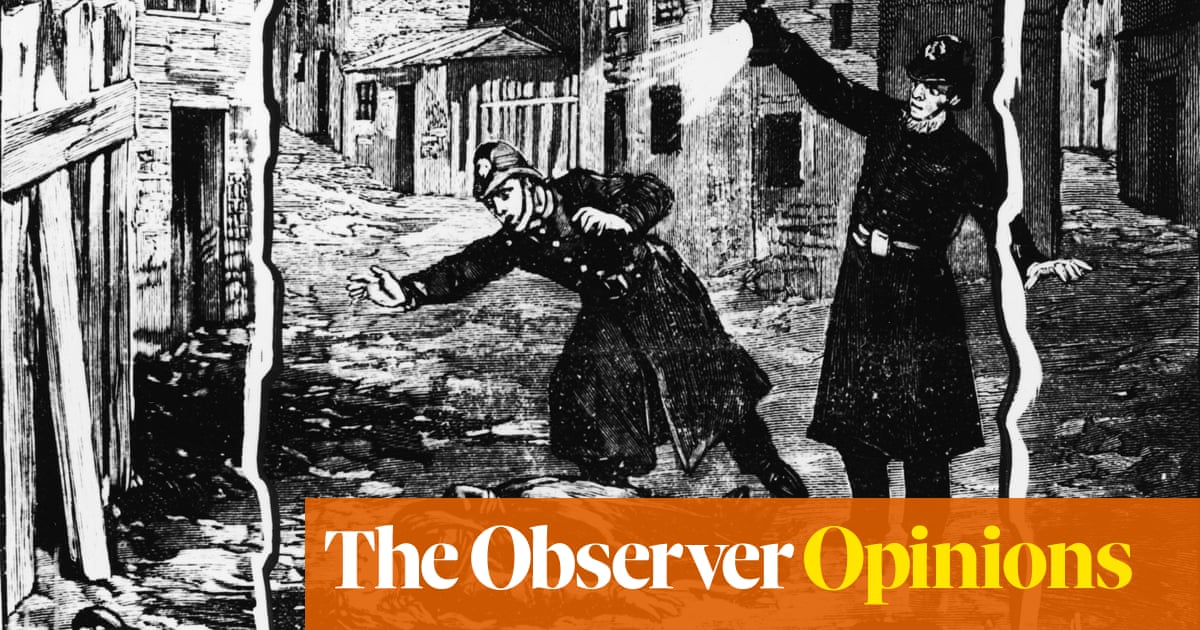
here has never been a whole lot of overlap between the social realism of Ken Loach and the twisted horror of A Nightmare on Elm Street. But that’s about to change with the release of His House, a strikingly original debut from the gifted British film-maker Remi Weekes, which was snapped up by Netflix at Sundance earlier this year for an eight-figure sum.
His House follows a South Sudanese couple – Wunmi Mosaku as Rial, Sope Dirisu as her husband Bol – who are dumped on a bleak Essex housing estate while their appeal for asylum is considered. Their temporary home is blighted by peeling walls, dodgy wiring and hostile neighbours. Worse than that, it’s haunted. If they flee, Rial and Bol risk deportation for violating bail. Stay, however, and they will need to do battle with the wall-dwelling creatures, which appear to have followed them from Africa.
This isn’t the first film to use the conventions of horror to address this modern crisis: Mati Diop’s Atlantics imagined the women of Dakar being possessed by the ghosts of migrants who had perished at sea. But it is undoubtedly the scariest. His House thrives on two types of threat, the social and the supernatural, each intensifying the other. Horror audiences will be accustomed to figures lurking in the back of the frame – it’s just that, in this case, there’s no knowing whether it will be a scuttling monster, a meddling immigration official, or a lout.
When the idea of a horror story involving asylum-seekers was first proposed to Weekes by producers, he was unsure if he had any personal connection to the material. Although his grandparents are from St Lucia and Sierra Leone, he was raised in London. “But once I thought about it, I was reminded of how I felt growing up in this country,” says the 33-year-old, sitting in his home with a bicycle leaning against the wall behind him.
“You’re torn. There’s one side that wants to assimilate and be accepted by a culture that is ambivalent toward you. Then another side wants to reject that, to be proud of where you’re from, to rebel against the norms. That’s always been in the background of conversations with my family and friends: which parts of us are English and which are from other places?”
The theme of tribalism underpins His House. Back in South Sudan, Rial scarred herself with the markings of two warring factions to improve her chances of survival. Now in Britain, she finds it harder to move between tribes. In the film’s most provocative scene, she approaches a group of black British teenagers for help, only to receive a chastening reminder that skin colour is no guarantee of solidarity.
Weekes consulted with Waging Peace, an organisation that opposes genocide and human rights violations in Sudan, and Right to Remain, which helps people navigate the UK asylum system. This was to ensure a realistic grounding for a story that takes flight into the nightmarish. “It was important to know how asylum seekers are treated,” he says. “The draconian rules, the uncaring bureaucracy, it all shows this lack of empathy.”
Physical displacement and disorientation become, in the film, a breeding ground for internal horrors. “Being effectively under house arrest, you can really take a battering psychologically. All the spooky stuff that happens in the house I wanted to treat as tangible. Whether it’s real or not doesn’t matter – it feels real to the characters.”
Weekes first made his name as one half of the partnership Tell No One, turning out playful, effects-driven video shorts with his childhood friend Luke White. The duo’s name suggests the sinister or the secretive, though nothing could be further from the truth. “We just wanted to put stuff online without telling anyone,” says Weekes. “It was more a reference to our psychology, to not letting ego get in the way. We’re very understated people. Get us in a meeting and we go quiet.”
Posting their shorts on YouTube and Vimeo, the pair attracted commissions from fashion and advertising. Those films have an enchanting simplicity: in one, coloured umbrellas pop open like vibrant floral blooms, while another shows arms layered digitally on screen to create a tree of limbs.
His House also features a multiple-arm scene, as does Weekes’s Channel 4 horror short Tickle Monster. Does he have a fear of limbs? “I don’t think so,” he says with a sheepish giggle. “Tickle Monster came from a conversation I had with a friend. He was dating someone who kept tickling him. Even though he hated it and it made him feel awful, his laughter seemed to the other person like some weird form of consent. I thought, ‘That could be a horror film.’”
He has also encountered another kind of monster: Harvey Weinstein, who was desperate to get his paws on His House, back when it was a hot script doing the rounds. “When I turned the Weinstein Company down, they got upset and tried to sue me. They’re very aggressive about getting the rights to films. If it wasn’t for the #MeToo movement that blew up the company, they probably would have had their way.” Now that’s a scary story.
• His House is in selected cinemas now, and on Netflix from 30 October.












